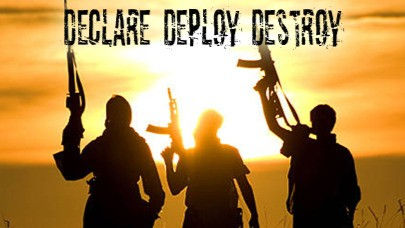The Cassandra Complex: Why We Must Listen to Those Who See the Future
- EG Weiss

- Aug 16
- 6 min read

In the world of homeland security, intelligence, and emergency management, there is a rare breed of individuals who are not only trained to recognize danger. These special people can see it before it happens. I’m not talking about a higher level of experience or skill, but rather an almost innate ability to perceive patterns and trajectories that others miss. These individuals, often referred to as "Cassandras," have the unique and often lonely ability to foresee what will happen before it does. This foresight is not rooted in fancy algorithms, advanced technology, or a supernatural gift, but in an uncanny processing of history, facts, and human behavior.
The name “Cassandra” comes from Greek mythology, a tragic figure cursed with the ability to predict the future but doomed never to be believed. Despite her undeniable foresight, Cassandra’s warnings about the fall of Troy went unheeded, and her prophecy of doom was ignored, leaving her isolated and disrespected. In many ways, today’s Cassandras; those individuals with an extraordinary ability to predict future crises suffer from a similar fate. Their warnings, whether about natural disasters, geopolitical threats, or societal breakdowns, are often dismissed, overlooked, or ignored by those who could act on them.
One such “modern-day” Cassandra (and personal hero of mine) was Stephen Saxby, a brilliant meteorologist who, in 1938, predicted the arrival of what would become one of the most devastating hurricanes in American history. Saxby didn’t simply forecast a storm; he accurately warned the nation about the imminent danger of a catastrophic hurricane months before it made landfall. His predictions were dismissed by government officials, who assumed that Saxby, with his unorthodox methods, was exaggerating.
When the Great Hurricane of 1938 struck, it pummeled the Northeast, causing devastating destruction and killing over 600 people. Saxby, helplessly watching the storm unfold, bore the weight of having been right all along, but also suffered the bitterness of knowing his warnings had been ignored. During the months between his forecast and the storm’s arrival, Saxby’s career was ended by those who wanted him silenced. He became a symbol of the foolishness of dismissing prophetic insight and foresight, relegated to the margins of his field while the world grappled with the consequences of his ignored expertise.
Today, Stephen Saxby’s name might not be widely recognized, but his story is emblematic of the broader issue at hand. Those who can forecast crises with eerie accuracy are often sidelined or marginalized, dismissed as alarmists or conspiracy theorists. Even when their predictions come true, they are rarely celebrated as the prophets they are. Instead, they’re often shunned by a society that is too comfortable in its complacency.
In the current political and professional climate, we find ourselves at a crossroads. We have a new administration making strides to usher in change, to clear the deck of the old guard, and to usher in fresh perspectives and solutions. On paper, it’s a revolution. But in practice, the same patterns persist. The same egos, the same short-sighted political operatives, and the same flawed systems that have led us to this point continue to dominate leadership roles.
We were promised new faces; individuals with the expertise and insight to challenge the status quo. We got new faces but many of those appointed seem to be more of the same, dressed in new suits and hailing from different states, but ultimately driven by the same political imperatives. While some notable figures, like Homan, Bondi, Hegseth, Kash and Noem, have brought fresh energy and ideas to the table, the deeper structures of power have remained resistant to real change. The people who are most equipped to bring about true transformation, the Cassandras, are still pushed to the margins.
The true Cassandras of our day; the individuals who can foresee the consequences of inaction or misguided policy are rarely chosen for leadership roles. They are too often relegated to the status of "conspiracy theorists" or labeled as "too radical." This is the tragic irony of our times: those with the most accurate predictions are ignored in favor of individuals who are content to perpetuate the same old patterns of behavior.
Take, for example, the California wildfires. For years, experts and concerned individuals predicted that the state's forest management practices were inadequate, that urban sprawl was pushing dangerously close to forested areas, and that climate change would exacerbate the intensity of these fires. Yet, time and again, the warnings were dismissed, and resources were allocated elsewhere. Had the Cassandras been taken seriously, we could have been better prepared both in terms of fire prevention and emergency response and potentially avoided the mass destruction and loss of life that has now become tragically common in California’s wildfire seasons.
Similarly, consider the Hill Country flooding in Texas. Experts in hydrology and local environmental concerns had long warned about the dangers of rapid development in flood-prone areas, coupled with a lack of proper water management strategies. While the state faced catastrophic flooding on multiple occasions, had those with foresight been consulted and heeded, there could have been more proactive steps taken, such as better floodplain management and earlier evacuations, potentially saving lives and reducing the damage caused.
Then there’s COVID-19. In 2017, a team of public health experts in the U.S. wrote a report warning of a global pandemic caused by a novel virus, citing the increasing likelihood of zoonotic diseases spilling over into humans due to climate change and urbanization. Despite the warnings, systems were not put in place to prepare for such an event, and when the pandemic struck, the response was fragmented, reactive, and poorly coordinated. Had the Cassandras been in charge of planning, perhaps the preparedness could have been better, the medical infrastructure more robust, and the chaos lessened. More lives could have been saved, and we might have been better equipped to handle the fallout in real time.
I’m weary… exhausted, really. I am tired of reading after-action reports and so-called "insightful case studies" that seem like nothing more than recycled warnings, their tense merely shifted to the past. How many times have I come across reports detailing crises and events where the same observations I’ve written, the same concerns I’ve raised, are echoed; just after the fact? The warnings were there, in black and white, well before the disaster struck, but they’re often stripped of their origin. The people who saw it coming, the true Cassandras, are never mentioned, never credited, and certainly never consulted when it comes time to prepare for the next event. Instead, the cycle repeats: the same mistakes, the same missed opportunities, and the same failure to include the individuals who were once right, but now dismissed. These reports should be a call to action, a recognition that the system failed to listen and failed to act, but instead, they often serve as a reminder of how much we overlook—and how much we continue to ignore.
It’s time for a shift in how we approach leadership selection not just in government but across all sectors. Healthcare executives, school administrators, corporate leaders, and other key decision-makers must recognize that the old way of selecting speakers, consultants, and coordinators for projects no longer works. Too often, these roles are filled by individuals who are politically connected, but lack the true foresight, insight, or vision needed to drive real change.
It is time for us to start listening to those who have the ability to see what’s coming. The people who can see the patterns, who understand the historical precedents, and who know the inevitable consequences of inaction. These are the true visionaries, the modern-day Cassandras, who should be at the forefront of decision-making in the public and private sectors alike. There are many right here on LinkedIn offering true prophetic insights with less than 5 shares of their posts.
If we are to address the challenges of today and prepare for the threats of tomorrow, we must begin to place the right people in the right positions. The same old political games, the same short-sighted thinking, and the same tired strategies will not suffice. The time for a new kind of leadership is now. We must embrace those who can see beyond the immediate and understand the trajectory of our future. Let’s stop ignoring the Cassandras among us, and start giving them the platforms, the roles, and the respect they deserve.



Comments